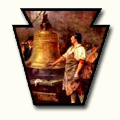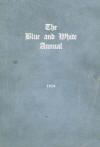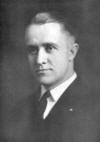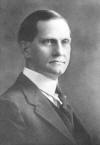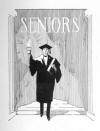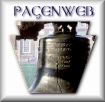|
Senior Class History
We entered our Freshman Year in High School on October 30, 1920. We were the subject of conversation throughout the school and by the public in general. This was not altogether due to the fact that we were "green," but also because of our number. There were one hundred and six of us, more than the number in any class in the history of the school. The class was divided into three groups. Instead of two as before, and we introduced the Section C into the High School.
While the Seniors looked down upon our actions with amusement, and sometimes disgust, we carefully finished our lessons and then would sit and dream of the time when we would take their places as the dignified Seniors.
We did not realize just how much the Upper Classmen thought of our welfare until the Sophomore Class decided to initiate our boys. We girls were afraid to go out in the evenings without someone to accompany us after we heard the many reports of the terrible things that were happening. It was said that they even attempted to tar and feather some of our boys! It soon reached Mr. Barrett's attentive cars, and then the seriousness of such actions was brought to the attention of, not only the Sophomores, but the entire High School. Everyone was made to realize that we belonged there and that they could not get rid of us; so we were left to ourselves for a time.
Not long afterwards the Freshmen held a party at Wolfe's Hall. We invited the Sophomores to this in order to banish any ill feeling between the two classes, and, as a minor (?) reason, to help us make the party a success financially. The two big features of the evening were the refreshments served by the Committee, and the music that was furnished by a Jazz Orchestra made up of High School Students. We danced until the "wee hours of the morning" and then everyone went home happy but tired.
After several months of hard work we decided that it was time to have another social. This time we held a dance at Marks' Hall. The music was furnished by Hollands Happy Six. When it was time to go home everyone was satisfied that the fun they had had, was well worth the little trouble it took to prepare for it.
As it was nearing summer, and our Freshman year at school was drawing to a close, someone mentioned a Moonlight Hike to Chimney Rocks as a fitting close of the socials held by us as Freshmen. Everyone was very enthusiastic about this, but for some unknown reason when the time came to go, only the "Faithful Few" were present. Miss Small, one of our reporting teachers, went with us as chaperone. The next day when they told us what a good time they had, we were all sorry that we had not gone too.
When school closed we were all anxious to show our skill in the things we had learned. Miss Alice Price, our science teacher, had given the girls in our class a short course in domestic science and the boys one in carpentry; teaching them the mysteries of how to make a fireless cooker. This was not an ordinary course, so we undertook to explain it all to our parents and friends.
The summer months soon sped by, and September 6, 1921 found us entering school as the "gay" Sophomores. This time we knew that no class in the school could be as important as we were. We knew just to which rooms to go, and, forgetting that we were "green" once, thought the Freshman should try to hide their "greenness" a little by going straight to their rooms instead of standing around looking at each other.
As soon as everyone was settled in school, we secretly made plans to initiate the Freshmen, because "turn about is fair play." Just when they, the Freshmen, were least expecting it, a few of the boys representing our class caught some of the other boys and gave them a thick coat of tar.
This happened between Hollidaysburg and Duncansville, and according to motorists who passed the scene of the hazing, the freshies were being handled very roughly. The next evening there was a large piece printed in the Altoona Mirror about it, and then Mr. Barrett realized again that it was time for him to take action. Once more we had to stay after chapel. He told us that two boys and one girl were unable to attend school, from the treatment they had received at our hands. He also asked us to refrain from any more such actions, so we consented, thinking at the same time that hazing parties are not supposed to last throughout the year.
One morning when we went to school, everyone found a surprise waiting for them in their desk in the shape of a little note. It was an invitation for all of us to go out to Esther Keller's, at Brush Mountain to a party. We were all anxious to go, and afterwards we all agreed that there could never have been a party of its kind before.
About this time everyone became interested in Basket Ball. The girls in the class decided that the boys should not lave all the glory so we organized a Sophomore Girls' Basket Ball team. Gladys Housum was Manager. Aletta Malone was Captain and also played as Center, Anna Lynch and Virginia Hunter were Forwards and Mabel Brenner and Dorothy Stroup were Guards. Esther Wilt and Margaret Griffith were "subs."
Although we did not play many games, the most important of these was with the Freshmen Girls. The gym was full of boys and girls when the whistle blew for the game to start. It was very exciting the whole way through, and when the time was up, we were victorious.
At the end of the season we were invited to a supper at the home of Anna Lynch in honor of the good work we had done as a team. We all agreed that there had never been such a meal cooked before, and each of us did full justice to it.
It was not long until the school doors were closed again for our summer vacation.
On September 4, 1922 the boys and girls all came back to school; some joyously, some silently, but the jolliest of all were the Juniors.
We endeavored to live up to our name as the "Jolly Juniors" but we knew that "there is a time for work and a time for play" and this was the time for work. Everyone did his best, so in February we left our work long enough to organize our class. The first thing we did was hold an election. Irvin Davis was elected Chairman, and Edna Snowberger was Secretary - Treasurer. Besides several Committees were elected.
Many of the boys took up the study of Chemistry, which was taught at that time by Mr. C. M. Haag. Many differences arose in the earnest discussion between the boys and their teacher, but when anyone became unreasonable, Mr. Haag usually settled with them by giving them a short lesson in boxing.
After several more months of hard work came the big event of the year, the Junior and Senior Dance. This was held at the Penn-Alto Hotel. When the banquet had been served the tables were cleared away and we danced to the tunes played by Dicks' Society Six until morning.
So ended our junior year.
We gathered in school September 5, 1923 with a different spirit than ever before. We knew this to be our last time to enter High School, so we decided to make this year one to be remembered by everyone.
The first month we worked hard to get good marks on our report cards, to win the favor of all the teachers, and to assume the dignity that was expected of us as Seniors.
Then - our work was over and we knew that our time for play was here at last. Nothing was taken seriously, not even our lessons, because we thought we knew more than the teachers now.
The one hard problem for us was Arithmetic. We tried to master it with all our might. Mr. Wade, the Arithmetic teacher, in his explanations said, "Let x equal what you don't know." Then he found Mabel Brenner grumbling that she did not understand Algebra. So Mr. Wade put his brains to work and at last found a remedy. He told us that we should use a question mark instead of x, and of course it was nothing like Algebra then. So we left a question mark equal what we didn't know, and our exam papers afterwards were easily corrected because all that was required on them was a question mark.
Immediately after Christmas we organized the class again. This time Irvin Davis was elected as President, Eva Knee as Secretary, and Harry Sandrus as Treasurer.
Most of our time was taken up after this with the selection of a motto, flower, ring, invitations, etc.
We are the largest class to graduate from this High School, our number being seventy-one. We thought we should do something that should be long remembered by everyone. We put our heads together and at last decided the best thing to do was to publish an Annual. This was taken up eagerly by all the members of the class and a Committee was elected which has done its work faithfully.
"Certainly, it is observed, this is a complete reproduction of the exploits of the migtiest class of a powerful Institution - THE CLASS OF "24"
Class Will
We, the Senior Class of the Hollidaysburg High School, Hollidaysburg, Pennsylvania, United States of America, being wholly of unsound mind and being fully aware that our days at this dear old institution are about to come to a punctilious end, do ordain and declare this to be our ultimate will and testimony in the manner following to wit:
1. To the class of twenty-five we leave the secret of our success as dignified and honorable seniors.
2. To the next year's Freshmen we leave a sandbox, two misused dolls and a choo-choo train with which to fill their spare time.
3. To Ted Soyster we leave Harry Hughes' insight into the ways of women.
4. To Jim Riser we leave one pack of chewin' and we will let him specify the quality.
5. To our helpmate and guide, Mr. Van Saun, one year's subscription to "True Story."
6. To "Tub" Keller the cheer leader's uniform if he thinks he can get into it.
7. To Mrs. Milleisen one partly new orchestra, slightly used.
8. To Don Heller we leave Ed. Kephart's ability to get the strangle hold on a fiddle.
9. To Dolly Frederick one Virgil "Pony" as soon as she receives a diploma.
10. To Jim Everhart, "Chap" Bromley's ability as a cue artist.
11. To "Peg" Cross we give notice that she will not walk to school with Ted McClellan next year.
12. To any qualified Freshman we give Howard Suckling's brutishness.
13. To the basket-ball team we give three rousing cheers.
14. To Lee Van Scoyoc, Ruby Robinson gives just one more little kiss on the corner.
15. To Harry Dubbs, one edition of our latest periodical, The Porch Climber's Revenge or Daring Deeds in the Dark.
16. To Dick Walsh we give "Red" Smith's knowledge of Winning on Two Pairs.
17. To Henry Locker we leave Mabel Brenner's ruined eyebrow to be used as a mustache.
18. To the cold, cruel world that awaits us Seniors we give our best in everything that we endeavor to do.
Lastly we constitute, appoint and pronounce W. R. Craig to be the executor of this our last will and testimony.
Whereof we place our land and seal this twentieth, day of March nineteen hundred and Twenty-four. - The Class of Twenty-four
Senior Class Prophecy
Although it was snowing and blowing fearfully in Chicago, on the fifteenth day of February, 1929, all the world was sweet to Howd. Suckling and me, electrical engineers and partners, for we had just signed a contract to superintend the erection of a large hydro-electric plant in South America. Here we are only a few months out of college, and a $10,000 job already. Pretty soft, eh what?
As we sat in our room, I could not help wondering whether Dame Fortune had treated the rest of the Senior Class of 1924 as well as Toad and I. During these years I still kept tract of a few of that class of classes. Barney Hartsock and Ted McClellan were on the vaudeville stage. Bud Thompson was running a big garage in Newry. Perry Williams and his syncopators, with Bill Keller at the Piano and Goldberg playing the Banjo, were in big demand all over the East. Bob Bagshaw after leaving Penn State, began teaching Agriculture at Morrison's Cove College. Professor Edwin Kephart was teaching harmony and agony on the violin, at Ore Hill. Fat Housum was peacefully married and settled down. I received occasional letters from Harry Sandrus who was in charge of a Chemical Laboratory in Buffalo, and from Bill Ross, who had a responsible position with a railroad in California. Bill Plank was a well known Church and Welfare Worker in Pittburg and Virgil Markey was a Foreman in the Steel Works at Johnstown. I watched the papers with interest for news of Emile Elizabeth Sommer, hailed as a second Galli Curci and who was to make her debut into Grand Opera in a few weeks.
My musings were rudely interrupted at this point by Howd telling me we were to make our train in half an hour, which was to take us to New York, and then off to Rio de Janerio! We made the train and were sitting in the smoker when two fellows came in behind us and began playing cards. After a while I heard one say, "I'll have to use my skill and ingenuity." There was no mistaking that voice and expression. I turned, and sure enough, there was Chap Bromley, and with him was Jim McGill. Chap was in Chicago on business for the Atlas Powder Company, and Jim was coming from a medical clinic in Rochester, Minn.
We were talking for about an hour when the train came to a stop, and the conductor carne through telling us a brdge had been damaged, but he expected to be able to move in an hour. I got out of the coach and walked up to the bridge. And of all things! There stood Louie Jackson talking to Rankin Stake. They were as much surprised to see me as I was them. Stonewall told me he was running a state experiment farm nearby, at this time, he was experimenting with wooden-legged chickens but so far, with little success, for in raining weather the legs warped and Stonewall had to provide crutches for his subjects. Stake was engineer for a contract company, and was there inspecting the bridge. Of course they came back to see the other fellows, but we did not have long to talk for the conductor came along calling "All Aboard." We parted with many promises to write, and wishes for each other's success. After we were speeding along for awhile we started playing rummy and in the several hours it took us to reach Pittsburg.
In Pittsburg we stopped off long enough to see Marg. Griffith who was keeping house and darning socks for the Reverend Jesse Helsel.
Took and I reached New York early the next morning and we just had time enough to board our boat. As we rushed up the gangplank and onto the boat, an officer nearby roared at us, "Where's your tickets?" We went over to show him the paste-boards and great Caesar! It was Cal Hoover, who had yelled at us. When he recognized us his mouth flew open and he stood like a mummy. After he came to life and shook hands all around he told us that he was an under-officer on the ship and that counting us there were eight Seniors of the class of 1924 on board. There were passengers coming up the gang-plank so Cal told us to come to his cabin after lunch, and have a reunion. After we got our state-room fixed up, we went on deck and almost fell over Alete Malone and Dot Stroup, who were talking outside our door. They were about as surprised as Cal was. We spent the morning together talking over old times.
Lete was writing articles for several of the leading magazines and was going to St. Petersburg for a rest. Dot was a detective and was going to Palm Beach on a secret job. At lunch we met Joe Eboch who was calling down a waiter when we came on the scene. Joe was Star Reporter for a New York newspaper and was going to Panama on a political scandal. We did not see anything of the other two Seniors until we were in Cal's snug cabin. There was a knock at the door. Cal called "Come in." The door opened and who do you suppose carne in? I will give you two hundred and thirty-six guesses. It was Red Howsare and Deacon Locher and both in uniform. Girls you should have seen that Locher boy in a Naval uniform. He sure is the "Ford's hind tire." Locher was chief-engineer and Howsare, radio-operator. We had a jolly time together.
Late the next afternoon, we docked at St. Petersburg. We were to remain all night so Lete took us all to Francis Mee's Japanese Tea room where we had dinner. Francis was giving orders to a waitress when we came in and she almost took "Apoplexy" when she recognized us.
While we were eating, Francis called Jane Langham and Crib Hughes on the 'phone and ask them to come over. Jane was proprietress of a classy Ladies' Shop and Crib had just come south with the Boston Red Sox for the spring training. We spent the evening telling of our last four years. Suckling got a crush on a little Japanese Waitress and after we had crawled in our berthes on the boat he kept me awake for half an hour raving about her. In two days we were docking at Colon and bade goodby to Joe. We told him to give our regards to Walter Pope, whom Cal told us was an engineer with the army on the Canal. In several more days we landed at Rio de Janerio.
We had to wait here for orders so we hired a car anal drove out 10 miles to a girls College where Martha Williams and Sara Stiffler were teaching.
The next afternoon we were walking along the promenade when Howd spied a very pretty dark haired Senorita and became crazy about her right off. When he goes into one of the fits he is worse than a one armed paper hanger with the twenty year itch. After a while he caught her eye and she smiled a little. After walking past her twice she dropped her handkerchief but I kept on stepping for I knew I had the rest of the day to myself.
Near the end of the street I noticed a small booth made of gaudily colored blankets. It was a fortune tellers stand. I never had an experience with one of these fakers so I went in. In the center of the room on a little stand was an iron pot and something in it burned with a pale blue flame. A wrinkled old Indian Squaw appeared from somewhere and extended her hand to me.
After I had given her some silver she told me to ask anything I wished to know. I thought a little and then asked how my school-mates were getting along. She pointed to the flame in the pot and then began to mutter and grumble. The flames seemed to fascinate me and I could not take my eyes away from it. Smoke began to ascend from the pot and in it I began to discern beautiful buildings. Then it seemed I was walking down a busy street, although I could not tell where. Above a door way I noticed a sign; Dr. James Locher, Painless Dentist. I went on and soon came to a large school building, just then several teachers came out and among them were Eva Knee, Martin Wilt, Ethelyn Tussey, and Edna Snowberger. Then Bob Nokes and Red Smith walked past. They were both very prosperous looking. Then I came to a big store. In one of the large windows Mabel Brenner and Chester Feathers were trimming and decorating. I came to a corner, and there stood Arden Heverly in a cop's uniform, directing traffic. Just as I was crossing the street an automobile passed by, Roy Dell was at the wheel in a chauffeur's uniform and Margaret Powell sat in the back with three kids. Then I passed a book-store with Thelma O'Shell and Helen Powell painted on the windows, and beside it was a sporting goods store owned by Joe Banholzer.
Now the scene changed. I was at a base-ball game. Joe King was playing short-stop and Ed Curran was pitching. Then the scene changed to a Country Club. A big buff colored car rolled up and out stepped Irv Davis, Dutch Davis, Gin Hunter and Anna Ernest, and in golf togs. Again I was back in a city, but in a residential section. Esther Wilt passed me pushing a go-cart and with a small boy at her side. A fellow passed with Melda Miller hanging on his arm. A little farther on, I noticed Jane Heverly and Lillian Fleck chinning over a fence. Next, I was in a large theater, packed with people. Anna Lynch, dressed as a "Hard One" was going thru some antics, and then Ruby Robinson came on the stage and sang a selection, and it was so real I could almost hear the words and the applause. In an upper box, saw Margie Shope.
A commotion outside broke the spell I came back to earth with a thud. The old woman was not about so I went outside. The brillant sunshine and strange surroundings seemed very unreal. 1 went to the hotel and waited for Howd to tell him my strange experience.
He came in late in the evening. Before he was near me he started about that girl. After a half hour I stopped him long enough to tell him about the fortune teller. He listened with a bored expression on his face, and when I had finished, he said "that's fine, but you should have seen her eyes." It was no use. He was gone and it would take a ton of dynamite and an earthquake to bring him out of it. That night the last thing I heard before I dropped to sleep, was "those eyes, those eyes."
Our Class
| Green was the hue of the meadows grass,
And green then stood for the Freshman Class,
Back in 1920
When the Sophomores put their fun on the ban,
Then we in earnest to study began,
Back in 1920
September then swiftly came once more
And our old name was changed to Sophomore,
Back in '21
We then worked hard till that spring came
And entered next fall in the junior name,
In '22
All of that year sped rapidly by
And gaily bidding the Seniors good-bye
In '23
We stepped right into the vacant place,
Assumed new dignity, poise, and grace
In '23 and '24
Blue and White, School colors are those,
Blue and Gold, the colors we chose
For 1924
And as long as June her moss rosebuds will give,
So long High School days in our memory will live,
From 1921
Unfolding just as the bud of the rose,
A greater life opens for all of those
Of '24
To whate'er achievements one may aspire
Work, Patience, and Hope will grant his desire,
To the Honor of '24
EDWIN KEPHART '24
|
Class Song
| Hail and farewell to all classmates so true
Who under the banner of the gold and blue
Sealed friendship's ties, which ne'r can be broken;
Deep graven mem'ries of school life unspoken.
Greet the blue anti gold with rousing cheer -
Hail to H. H. S. and our classmates clear.
What more can we wish than these school days so fair,
High hearts never daunted - nor place for despair.
From Freshmen to Seniors our thoughts ever true
To the brave lofty standard of gold and blue.
Greet the blue and gold with rousing cheer -
Hail to H. H. S. and our classmates dear.
Hearts ever loyal to the Class of '24
Character - diploma true - our theme ever more.
Tho bravely with lips, still our hearts sadly sigh
When we bid you farewell - our fond last goodbye.
Greet the blue and gold with rousing cheer -
Hail to H. H. S. and our classmates dear.
Bettie Sommer
|
Social Activities
The class of Nineteen Hundred and Twenty-four was not only prominent in athletics and in other school activities, but also in social affairs. All of the class socials were a great success due to the spirit of the class.
1920 - 1921
In the early spring of nineteen hundred and twenty-one, rumors of parties among the upper classmen were spread in school. The class of '24 (then Freshmen) caught the fever and decided on a party of their own. It was held in March, nineteen hundred and twenty-one. A large number of Freshmen turned out. Dance music was Furnished by The Merry Melody Mixers. The party was a great success and marked the first social affair of the class.
1921 - 1922
The second class affair was the Sophomore Dance. This was given in February, nineteen hundred and twenty-two. Everyone voted it a big success.
1922 - 1923
The big social event of the year was the Junior-Senior Banquet. The Junior class banqueted the Seniors of '23 at the Penn-Alto. After the banquet Dick's Society Six furnished music for the dance. At a late hour everyone departed for home with memories of a wonderful evening.
1923 - 1924
Last, but not least, will be the annual Senior Banquet. As yet the details have not been arranged; but we do know that it will be the biggest and best affair of all.
1924 Blue & White Part 1, Part 2, Part 3, Part 4
| 